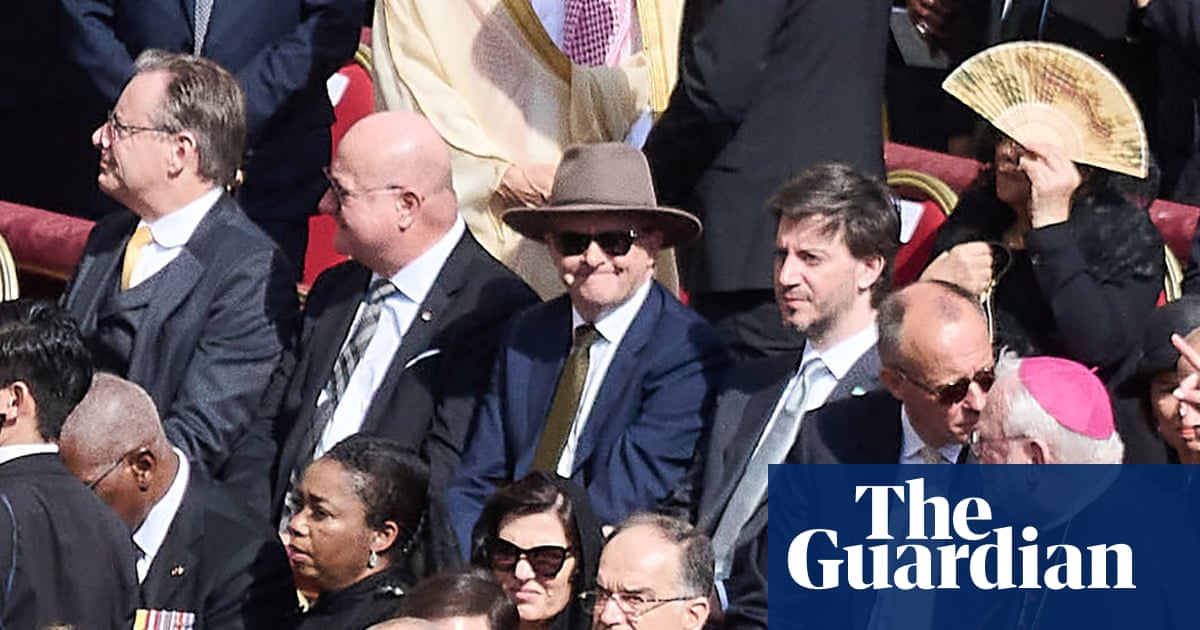The European Union has raised the prospect of a security pact with Australia asAnthony Albanesemet with world leaders in Rome, including a brief conversation with Pope Leo XIV following the pontiff’s inauguration mass.
The prime minister met with European Commission president Ursula von der Leyen overnight in the Italian capital to discuss the “constructive relationship” Australia can play in “today’s uncertain world”.
In short remarks before the meeting, Von der Leyen signalled the EU would like to “broaden this strategic partnership”, including on defence and security matters.
“We are predictable, we share the same values as you just said. So we can offer to each other stability and we’re very grateful for that. And this is the reason also that we do not only see you as a trading partner, but we see you as a strategic partner, and we would very much like to broaden this strategic partnership,” she said.
“We would be very pleased if we could develop such a security and defence partnership too, just to broaden the strategic partnership in many topics that we have in common.”
Sign up for Guardian Australia’s breaking news email
Albanese was reportedly cautious but indicated he was open to considering the proposal, which might involve future military exercises and other cooperation in areas of mutual interest, according to the ABC.
Albanese reaffirmed Australia’s support forUkraineagainst Russian aggression in a separate sideline meeting with the Ukrainian president, Volodymyr Zelenskyy, reiterating his consideration for sending troops as part of a coalition of the willing “if a peace process emerges”.Albanese met with other world leaders, including the Canadian prime minister, Mark Carney, who had converged in Rome for the new pope’s inauguration mass in the Vatican.
Sign up toBreaking News Australia
Get the most important news as it breaks
after newsletter promotion
Albanese spoke to Pope Leo XIV about his mother, after being ushered into St Peter’s Basilica in Rome following the Catholic leader’s inauguration mass.“I spoke to him about my mother who would be, I’m sure, looking down from Heaven with the biggest smile she’s every had,” the prime minister told reporters at the Vatican on Sunday.Albanese, who was raised Catholic in a housing commission flat in Sydney, often references his single-parent mother and her influence on his life.Australia has been pursuing a free-trade agreement with the EU, which is yet to be settled.Federal frontbencher Tanya Plibersek agreed there had been a few “sticking points”.“There’s about a thousand names that theEuropean Unionwants to restrict the use of, and they are parmesan, fetta, prosecco, a whole lot of names of food that are related to the place where they come from,” she told Seven’s Sunrise program.“But we would say that the parmesan made in Australia is world’s best and we want to make sure that any free-trade agreement with the European Union is a clear advantage for Australia.“We’ll continue to work through it.”A trade agreement with the EU would open up a market for Australian goods and services to more than 400 million people.As a bloc, the EU was Australia’s third-largest two-way trading partner in 2022/2023. It’s also the sixth-largest export destination and the third-largest services export market.Two-way trade is valued at around $110bn.
